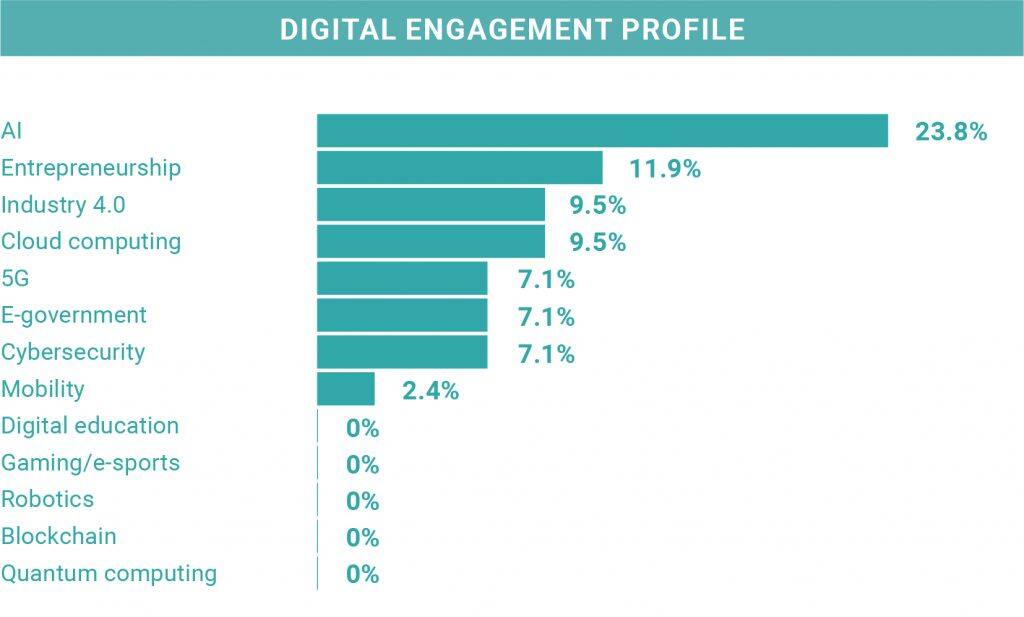European heads of state and governments’ approach to digitisation varies widely. This is one of the main findings of the first ever Digital Engagement Report, an in-depth analysis of all 27 European leaders’ digital priorities published by ESCP’s European Center for Digital Competitiveness.


The aim of the Digital Engagement Report is to highlight the importance of European leaders in the digital transformation of their countries, as well as to investigate which digitalisation issues they address.
The first ever report of this kind, it shows that European heads of state and governments approach digitalisation with very different priorities: Estonia, Germany, France, the Netherlands and Luxemburg have the most active leaders while Poland, Italy, Bulgaria, Hungary and Slovenia have the least active.
The Digital Engagement Report also shows that digital technologies have varying importance throughout Europe: In 2019, Estonia’s Jüri Ratas spent over five times more time on the topic than Slovenia’s Marjan Sarec or Hungary’s Victor Orbán. Also, there is no harmonized European approach to digital technologies, with every country setting its own agenda. Key future technologies, such as quantum computing and robotics, are disregarded by most European heads of state and governments.


European leaders have clear topic-focused profiles
Detailed engagement profiles for each European leader, which are available here as well as a summary of the Digital Engagement Report, show for instance that Angela Merkel focuses mostly on digital infrastructure while neglecting the topic of entrepreneurship. Emmanuel Macron, on the other hand, puts artificial intelligence and entrepreneurship in the spotlight.
Europe needs a common strategy for digital technologies
“Digitisation in Europe is still like a patchwork quilt,” explains European Center for Digital Competitiveness by ESCP Business School Founder & Director, Professor Philip Meissner. “How well Europe is able to position itself in terms of digital technologies will determine its future economic power and geopolitical position. We need a uniform and powerful approach to drive this topic throughout Europe. In a nutshell, we need a digital strategy for Europe with key elements like entrepreneurship and digital education.”
“Given the size of the challenge and the speed of technological progress, we need uniform European priorities to finally enable large-scale investments in future technologies,” adds fellow European Center for Digital Competitiveness Founder & Director Christian Poensgen. “Europe must act now.”
About the Digital Engagement Report 2020
The Digital Engagement Report is based on a Digital Engagement Index, which evaluates European leaders’ digital activities in 2019. The Digital Engagement Index is compiled from a variety of publicly available information from governments themselves, from the press and personal reports on the Twitter social media platform. These digital activities were then classified according to the type of interaction (conferences, private sector meetings, political meetings and press conferences) and according to their focus (5G, artificial intelligence, Blockchain, cloud computing, cyber security, digital education, e-government, entrepreneurship, gaming/e-sports, industry 4.0, mobility, quantum computing and robotics).







































